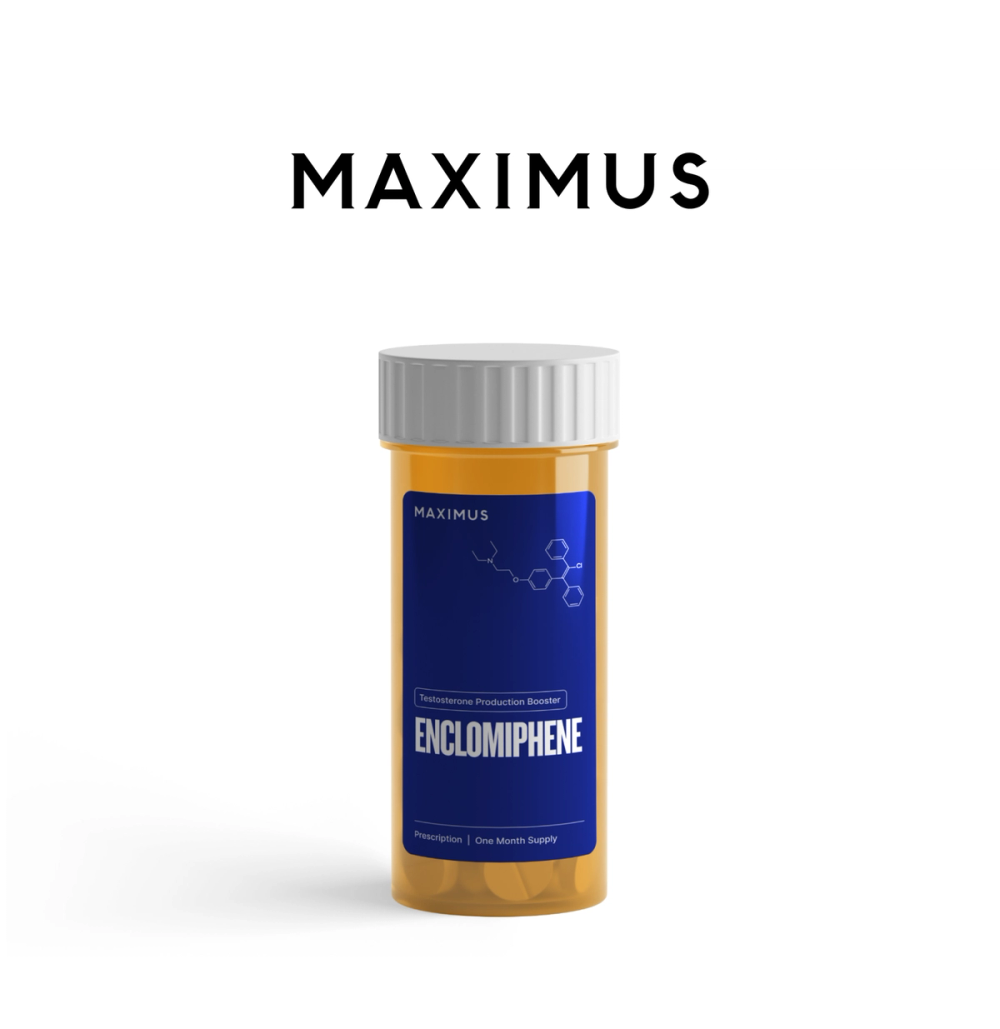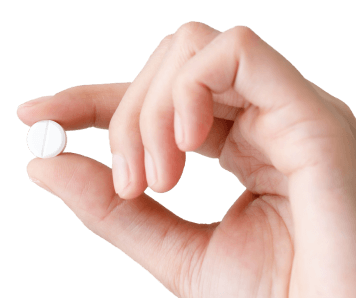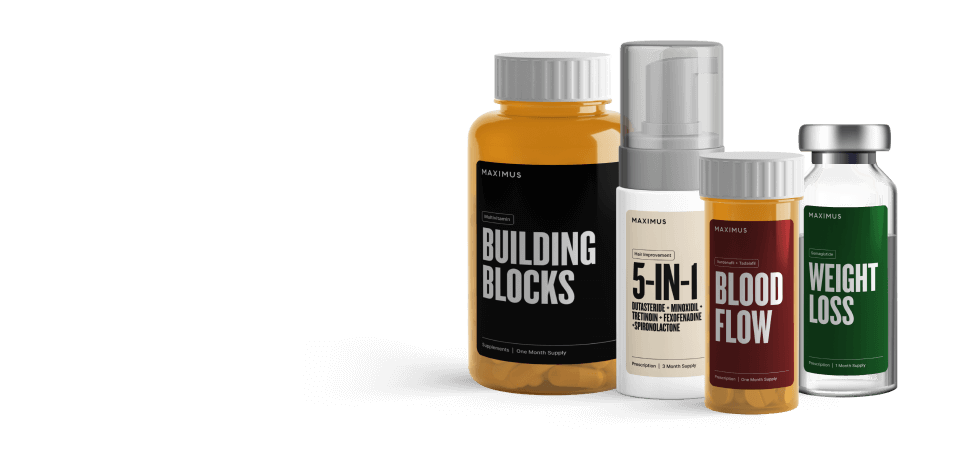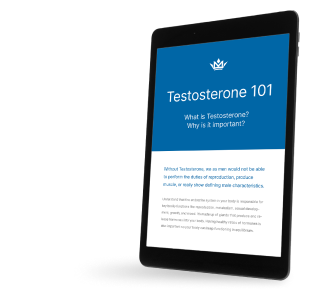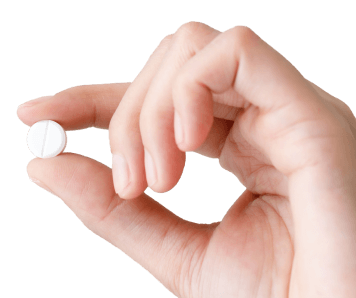Key Takeaways:
- In a newly released white paper on the Maximus Testosterone Protocol, research shows that treatment with enclomiphene citrate significantly increases both free and total testosterone levels.
- Most participants adhered to the protocol for up to three or more years without adverse effects.
- Participants reported significant improvements in quality of life, mood, libido, energy, athletic and work performance, and overall well-being.
- The white paper shows that for men with low testosterone who are looking to optimize their health and performance, enclomiphene is a convenient alternative to TRT that doesn’t suppress luteinizing hormone and sperm production.
Enclomiphene citrate, often referred to as enclomiphene, is a medication that is redefining the landscape of testosterone optimization. Where testosterone replacement therapy (TRT) replaces your body’s testosterone with a synthetic version of the hormone, enclomiphene stimulates your body to make more of its own testosterone, with fewer side effects and no risk to fertility.
In a new white paper, “Maximus’ Testosterone Protocol is a safe and effective way of increasing testosterone and well-being in hypogonadal and eugonadal men,” co-author Dr. Cam Sepah, CEO of Maximus, explains why enclomiphene is quickly emerging as a compelling alternative to TRT and other traditional forms of testosterone therapy. The white paper shares data on 1,250 men taking enclomiphene as part of the Maximus Testosterone Protocol.
Read on to explore the main findings in this white paper and understand how enclomiphene impacts testosterone levels, mood, libido, energy, and overall quality of life.
What is enclomiphene?
Enclomiphene belongs to a class of medications known as selective estrogen receptor modulators (SERMs). These medications impact how estrogen works in the body.
Enclomiphene is known as an estrogen antagonist, which means it blocks estrogen at the hypothalamic–pituitary–gonadal axis (HPG axis), which leads to an increase in the hormones luteinizing hormone (LH) and follicle-stimulating hormone (FSH). This prompts the testes to produce more of its own testosterone and sperm. This is a marked difference from TRT, which is known to shut down HPG axis function. With synthetic testosterone already circulating in the body, the body stops making its own.
Research comparing enclomiphene to TRT has found both methods effectively increase testosterone, but those on TRT experience a significant decline in sperm concentration. In one study comparing the two methods, more than half (54%) of subjects become oligospermic (the diagnosis for low sperm count).
Digging into the white paper
The white paper, titled “Maximus’ Testosterone Protocol is a safe and effective way of increasing testosterone and well-being in hypogonadal and eugonadal men,” was co-authored by S. Cameron Sepah, PhD; Hunter Henry, MS; Gabriel Alizaidy, MD; and Nick Boerger, MS; all affiliated with the Department of Psychiatry at the University of California San Francisco. The paper’s purpose was to evaluate the effectiveness of an online telemedicine treatment protocol, which includes enclomiphene, among men with both low or normal testosterone.
The subjects studied included 1,250 male participants enrolled online in Maximus’ Testosterone Protocol, which combines prescription enclomiphene with coaching focused on improving health behaviors related to testosterone, such as diet, exercise, and sleep. The protocol also includes baseline blood tests performed at home and follow-up blood tests to monitor progress.
To be included in the study, participants completed a baseline blood assessment before treatment along with a baseline medical questionnaire. After three to four weeks of treatment, another blood test was performed to check enclomiphene levels after adjusting the dosage for peak concentration. Starting dosages were 3.125mg, 6.25mg, or 12.5mg, based on the participants’ baseline blood test results and answers from their baseline questionnaires.
No participants with pituitary disorders, testicular failure, or on hormonal therapy were included in the study.
Notable findings
At the end of the study, participants on the Maximus Testosterone Protocol experienced a doubling of free testosterone levels, as well as significant improvements in areas of well-being including mood, libido, energy, athletic and work performance, erection quality, strength, and overall quality of life. Enclomiphene citrate was determined to be a safe and effective long-term treatment for men looking to optimize their health and performance when struggling with low testosterone symptoms, even if their total testosterone levels were considered to be within “normal” range.
As the white paper explains, many benchmark figures used to define normal testosterone levels are developed in older participants and are not necessarily representative of the expected “normal” ranges in younger, healthy participants. Instead, it’s preferable to measure free testosterone or bioavailable testosterone, which refers to the form of testosterone that’s free to circulate and available for use in the body. This research included men as young as 18 and up to 69 years old with low testosterone symptoms, whether their total testosterone level measurements were “normal” (300 ng/dL or higher) or “low” (below 300 ng/dL) according to current benchmark figures.
A positive impact on testosterone levels
The white paper shows that participants experienced a significant increase in both free and total testosterone levels during the study. Following treatment, nearly every participant in the study surpassed the 300 ng/dL total testosterone threshold. Here are some other key findings:
- In the first follow-up blood tests, free and total testosterone levels had significantly increased in participants, upwards of 89.7% and 81.8% respectively.
- Participants’ LH levels increased 87.1%, on average.
- There was a dose-dependent response up to 12.5mg, with the two most common dosages, 6.25 mg and 12.5 mg, resulting in 67% & 150.3% relative increases in free testosterone.
- In a secondary analysis, which excluded study participants who were suspected of having primary hypogonadism or prior use of TRT, there was a 96.5% increase in free testosterone and 87.7% increase in total testosterone.
Long-term safety and adherence
Enclomiphene is considered a safe long-term treatment. After discontinuing treatment, testosterone levels may return to baseline, so it is recommended to stay on the medication as long as it is working.
In the study, most participants adhered to the protocol for up to 3 or more years without adverse effects, indicating long-term safety.
Only non-specific, minor side effects were reported, with no serious adverse events. These minor side effects included weight gain, changes in libido, allergic reactions, and acne, which are consistent with those reported in previous trials.
Improvements in holistic well-being
Participants in the study reported significant improvements in quality of life, including mood, libido, and athletic performance.
Among improvements seen, 55.1% of subjects experienced increases in energy, 50.3% experienced improved sports ability, 48.3% experienced increased libido, 46.9% experienced better work performance, 43% experienced increased enjoyment in life, and 42.6% experienced increased happiness. Additionally, 43% experienced improvements in erections, 38.1% experienced improved strength and endurance, and 29.1% experienced improvements in being able to fall asleep after dinner. All of these rates of improvement were considered statistically significant according to the researchers.
Meanwhile, 54.3% of respondents showed improvements in depression. And when looking at both anxiety and depression, researchers reported that just over 67% of participants experienced an overall improvement in mood.
The bottom line: Enclomiphene offers a safe and effective solution for increasing testosterone and overall well-being.
Based on the known side effects of more traditional testosterone therapies like TRT, and the findings in this white paper, enclomiphene appears to be a safe and effective long-term treatment for men with low and normal testosterone levels who are looking to optimize their health and performance.
Find out if the Maximus Testosterone Protocol is right for you.
Disclaimer: The contents of this article, including, but not limited to, text, graphics, images, and other information, is for information purposes only and does not constitute medical advice. The information contained herein is not a substitute for and should never be relied upon for professional medical advice. The content is not meant to be complete or exhaustive or to be applicable to any specific individual's medical condition. You should consult a licensed healthcare professional before starting any health protocol and seek the advice of your physician or other medical professional if you have questions or concerns about a medical condition. Always talk to your doctor about the risks and benefits of any treatment. Never disregard or delay seeking professional medical advice or treatment because of something you have read on this site. Maximus does not recommend, endorse, or make any representation about the efficacy, appropriateness, or suitability of any specific test, products, procedures, treatments, services, opinions, healthcare providers or other information contained herein. Maximus is not responsible for, nor will they bear any liability for, the content provided herein or any actions or outcomes resulting from or related to its use.

